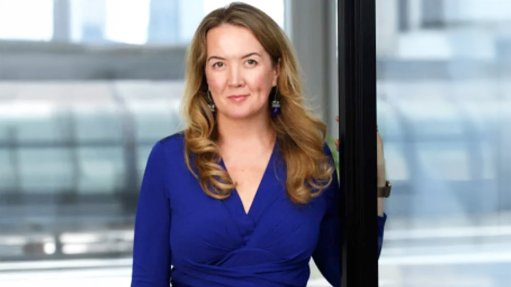Debt, climate change and economic transformation
Debt is never free lunch, even if it is for the cause of climate change. Debt’s relation to the creditor is defined by what the creditor demands as the rate of return in what the sociologist George Simmel would characterise as the “complete heartlessness of money”.
There is a certain varnish put on forms of debt that are designed to achieve noble ends but, in reality, debt can either raise a country or reduce it to ashes. We sit today with the problem of the debt pump and debt distress.
Different versions of the debt pump have existed in history and, since 1991, we have seen how debt-for-equity swaps created a loathing for the oligarchs in Russia. Some were hounded out and others put in jail – to the extent that anti-individualist forms of social order have come to impose themselves on the Eurasian heartland.
We are in a world where capital reigns and people with moneybags seek more money from money.
Debt ought not be a problem if you can put it to good use. Debt that increases the obligation of the debtor to the creditor is ruinous, especially if the creditor knows the debtor has no ability to overcome the debt trap.
Debt is not just money but an instrument of power. Haiti, which witnessed the first significant revolution led by slaves, has to this day not been able to withstand the pummelling it has suffered through its debt trap and endless natural disasters such as hurricanes and earthquakes. Haiti continues to reel under the weight of these burdens. Haiti is today a vulnerable island State that has been rendered ungovernable and become more of a place of terror ruled by gangs than anything else.
Haiti is a classic example of odious historical debt that has a causal relationship with State collapse. Not too far from the Haitian shores sit other Caribbean Islands facing similar challenges associated with climate change and debt. Some have learnt prudence: they include in new debt or refinance instruments debt suspension clauses so that, when a disaster hits, they can implement recovery efforts without having to borrow more money.
However, not all creditors should be blamed for the ills caused by the debt they extend. In Mozambique, debt collusions between a leading political figure and international arrangers from famous banks saw the funds used for nefarious ends. Mozambique is also reeling from repeated bouts of cyclones and has also been battered by repeated indebtedness – its only saviour, it would seem, are its rich gas finds.
The issue of what is money and what it is used for has long been a subject of historical and economic debate – right from the day money was conceived as a form of exchange and obligation between parties.
A long-lost name in the annals of economic theory, Silvio Gesell, argued that money was the problem of today. Gesell wanted to devise a form of currency that lost value if it was not naturally circulated sufficiently in the economy. He wanted to remove the idea that money should be a store of value but rather have money as an instrument of exchange only.
Gesell saw the foreboding dark side of money. Money for the purpose of unearned income – as a tool of beneficial extraction at the expense of others – moralises forms of money economy that are extractive. In other words, this valorises money but devalues social relations.
Influenced by the work of Henry George, Gesell extended this thesis to the question of land speculation. In the case of both money and land, Gesell’s interest was in changing the character and purpose of money, and with this the very nature of social relations. As concerned as he was with the relation of money to equity, Gesell also envisaged the idea of an International Valuta Association that would issue and manage a neutral international monetary unit freely convertible into national currencies. This was later taken up by John Maynard Keynes through his concept of the Bancor.
In speaking of social relations, money is also a device of control in international relations.
It is also no surprise that economic power comes from those who hold the dominant currency of exchange. It is more clearly understood in our time as the US is confronted with a new rising power. Control over the dominant currency of trade means that countries that are printers of the currency have direct access and control over flows of finance and often the destiny of nations and corporations. This is the subject of a new book by Henry Farrell and Abraham Newman, which unpacks the US’s underground empire and the different ways the dominance of the US dollar is leveraged as a form of control over international affairs.
On the question of debt for climate outcomes, things such as debt for climate swaps raise the question of whether the solution is itself the problem. In other words, trying to look smart with debt swaps may not always be smart.
On the African continent, low-income countries face a debt challenge and many of the debt sustainability measures have not been resolved. Close to 40% of debt is owned by private creditors and they have been hard at work not to conclude outcomes that favour the debtors. It is a source of tension with debt sustainability initiatives that official creditors often have to take a big hit on defaults while private creditors are not keen on ‘haircuts’ to their own loans.
It is worth considering, as a final point on this matter, that debt solutions cannot be isolated outside the broader economic maelstrom. It must be put to good use for the purposes of economic resilience. As has been noted here before, economic resilience leads to climate resilience.
Article Enquiry
Email Article
Save Article
Feedback
To advertise email advertising@creamermedia.co.za or click here
Announcements
What's On
Subscribe to improve your user experience...
Option 1 (equivalent of R125 a month):
Receive a weekly copy of Creamer Media's Engineering News & Mining Weekly magazine
(print copy for those in South Africa and e-magazine for those outside of South Africa)
Receive daily email newsletters
Access to full search results
Access archive of magazine back copies
Access to Projects in Progress
Access to ONE Research Report of your choice in PDF format
Option 2 (equivalent of R375 a month):
All benefits from Option 1
PLUS
Access to Creamer Media's Research Channel Africa for ALL Research Reports, in PDF format, on various industrial and mining sectors
including Electricity; Water; Energy Transition; Hydrogen; Roads, Rail and Ports; Coal; Gold; Platinum; Battery Metals; etc.
Already a subscriber?
Forgotten your password?
Receive weekly copy of Creamer Media's Engineering News & Mining Weekly magazine (print copy for those in South Africa and e-magazine for those outside of South Africa)
➕
Recieve daily email newsletters
➕
Access to full search results
➕
Access archive of magazine back copies
➕
Access to Projects in Progress
➕
Access to ONE Research Report of your choice in PDF format
RESEARCH CHANNEL AFRICA
R4500 (equivalent of R375 a month)
SUBSCRIBEAll benefits from Option 1
➕
Access to Creamer Media's Research Channel Africa for ALL Research Reports on various industrial and mining sectors, in PDF format, including on:
Electricity
➕
Water
➕
Energy Transition
➕
Hydrogen
➕
Roads, Rail and Ports
➕
Coal
➕
Gold
➕
Platinum
➕
Battery Metals
➕
etc.
Receive all benefits from Option 1 or Option 2 delivered to numerous people at your company
➕
Multiple User names and Passwords for simultaneous log-ins
➕
Intranet integration access to all in your organisation

















